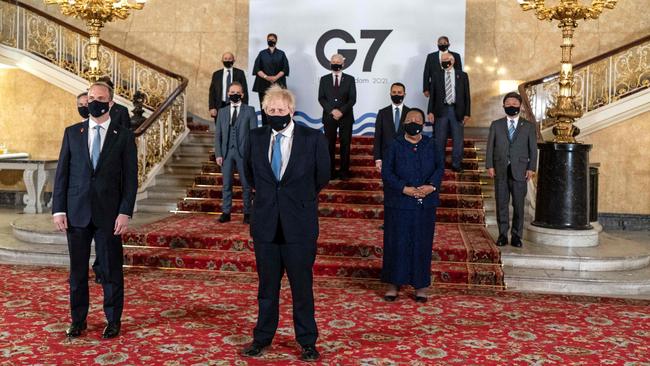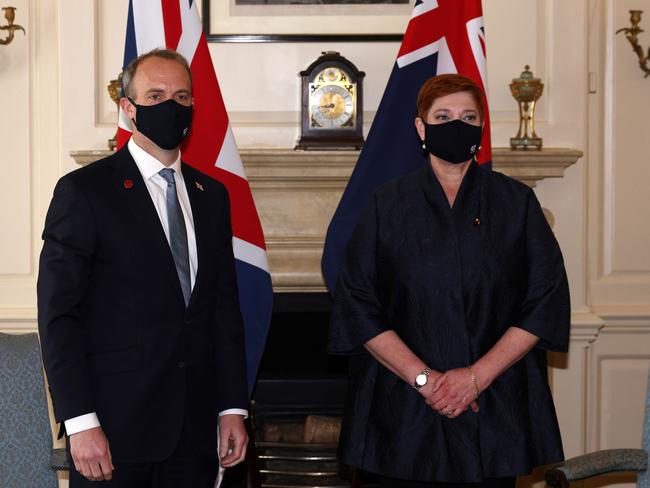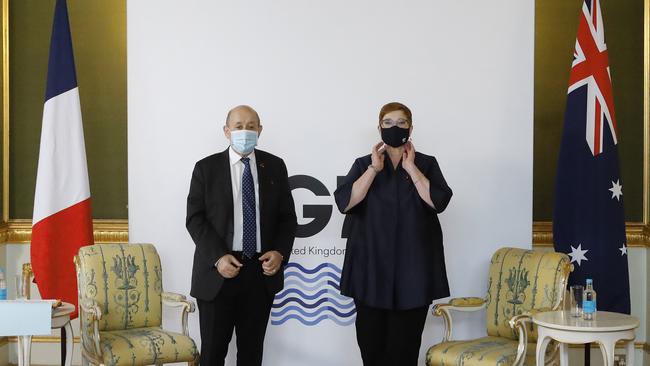G7 foreign ministers call on China to respect human rights
G7 foreign ministers, including Marise Payne, call on China to ‘participate constructively in the rules-based international system’.

The world’s wealthiest democratic nations have called upon China to “participate constructively in the rules-based international system’’, allow an independent investigation in Xinjiang and respect Hong Kong’s rights and freedoms.
G7 foreign ministers including US Secretary of State Antony Blinken, UK foreign secretary Dominic Raab plus guests Australia, South Africa, South Korea and India have issued a joint communique encouraging China, as a major power and economy with advanced technological capability, to address global challenges including climate change and biodiversity loss, to promote economic recovery from COVID-19 and to support the fight against the current pandemic and prevent future ones.

“We look for opportunities to work with China to promote regional and global peace, security and prosperity,” they said.
But the ministers “strongly supported’’ independent and unfettered access to Xinjiang — home to China’s Uighur people — to assess the situation there. They also remain gravely concerned by China’s decision fundamentally to erode democratic elements of the electoral system in Hong Kong.
“We call on China and the Hong Kong authorities to end the targeting of those who defend rights and freedoms and democratic values, to uphold the independence of the judicial system and to ensure cases are not transferred to the mainland,” the ministers said.
Australia’s foreign minister Marise Payne, who attended an evening dinner at Lancaster House discussing the Indo-Pacific and then had a bilateral meeting with Mr Raab, tweeted that Australian and British bonds were “stronger than ever” as the partnership in the Indo-Pacific deepens.
🇦🇺 & 🇬🇧 bonds are stronger than ever, as our partnership in the #IndoPacific deepens. This morning in London, @DominicRaab & I discussed shared priorities including equitable vaccine access, cyber, Myanmar, Xinjiang & human rights. We welcome the UK #IntegratedReview. @G7pic.twitter.com/0xrMT3nUGl
— Marise Payne (@MarisePayne) May 5, 2021
She said she discussed shared priorities including equitable vaccine access, cyber, Myanmar, Xinjiang and human rights and added that Australia welcomed the UK’s Integrated Review into foreign policy.
The UK has tilted its attention towards the Indo-Pacific, with its new aircraft carrier HMS Queen Elizabeth this week joining more than 20 warships, three submarines and 150 aircraft from 11 nations in a two-week exercise off Scotland. This will be the final test for the Carrier Strike Group before a 28-week Indo-Pacific deployment to visit 40 countries including India, Japan, South Korea and Singapore.
In a nod to the Chinese influence in the Indo-Pacific region, the ministers called for improvements in regional connectivity through quality infrastructure development and projects.

“We reiterate the importance of maintaining a free and open Indo-Pacific which is inclusive and based on the rule of law, democratic values, territorial integrity, transparency, the protection of human rights and fundamental freedoms, and the peaceful resolution of disputes and underscore our intention to work together with ASEAN and other countries on these endeavours through a wide range of activities,” the communique said.
As to the South China and East China seas, the ministers remained “seriously concerned’’, about reports of militarisation, coercion, and intimidation in the region.




To join the conversation, please log in. Don't have an account? Register
Join the conversation, you are commenting as Logout